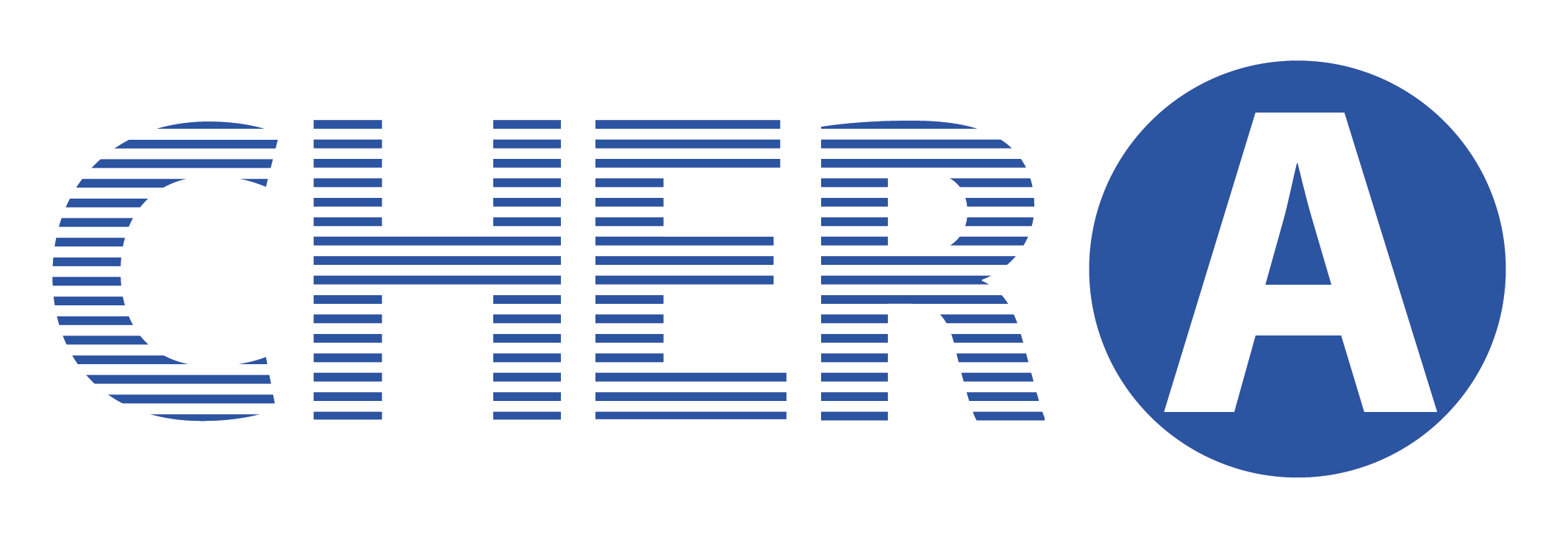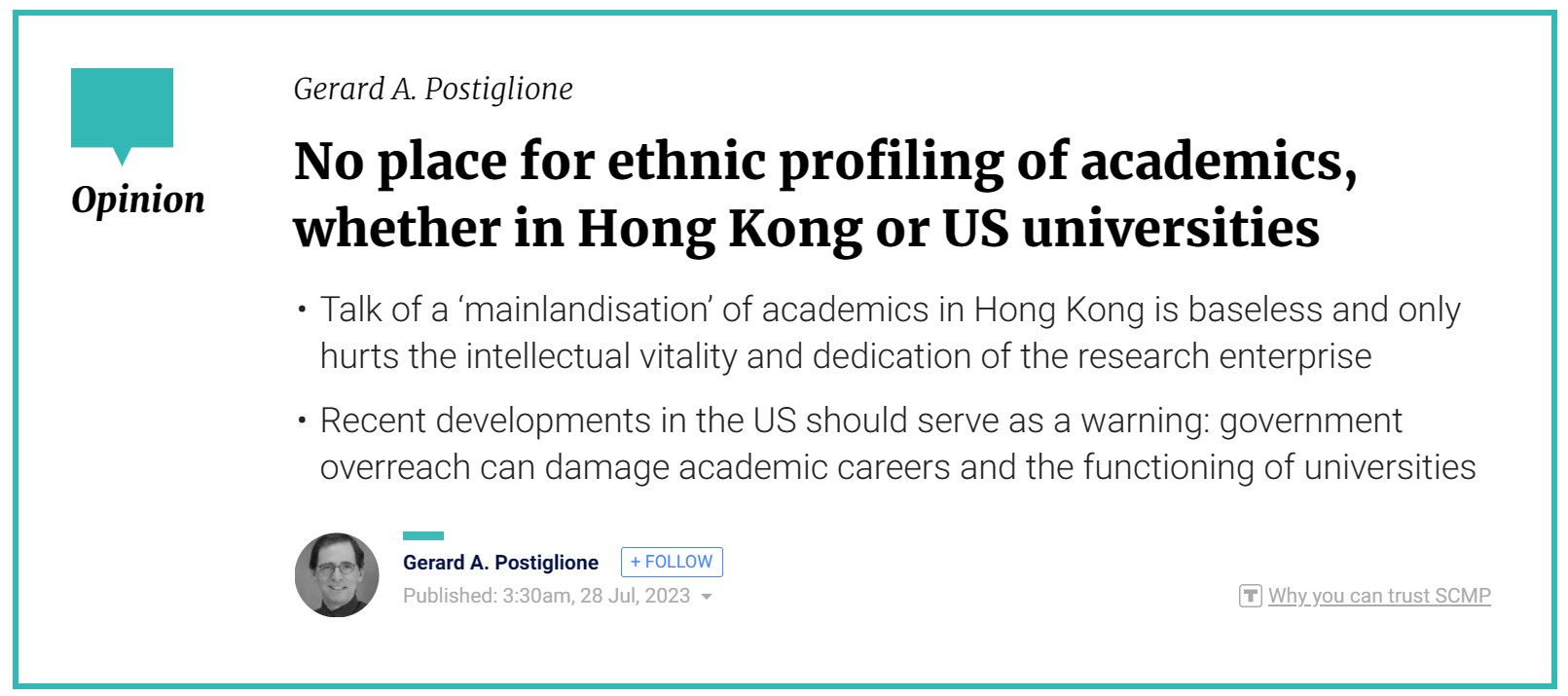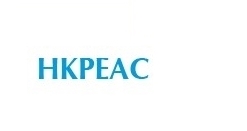What’s New

MEd Capstone Projects 2024-2025: Higher Education Specialism
MEd Capstone Projects 2024-2025: Higher Education Specialism
Upcoming seminar
The future of Australian higher education and the Australian Universities Accord
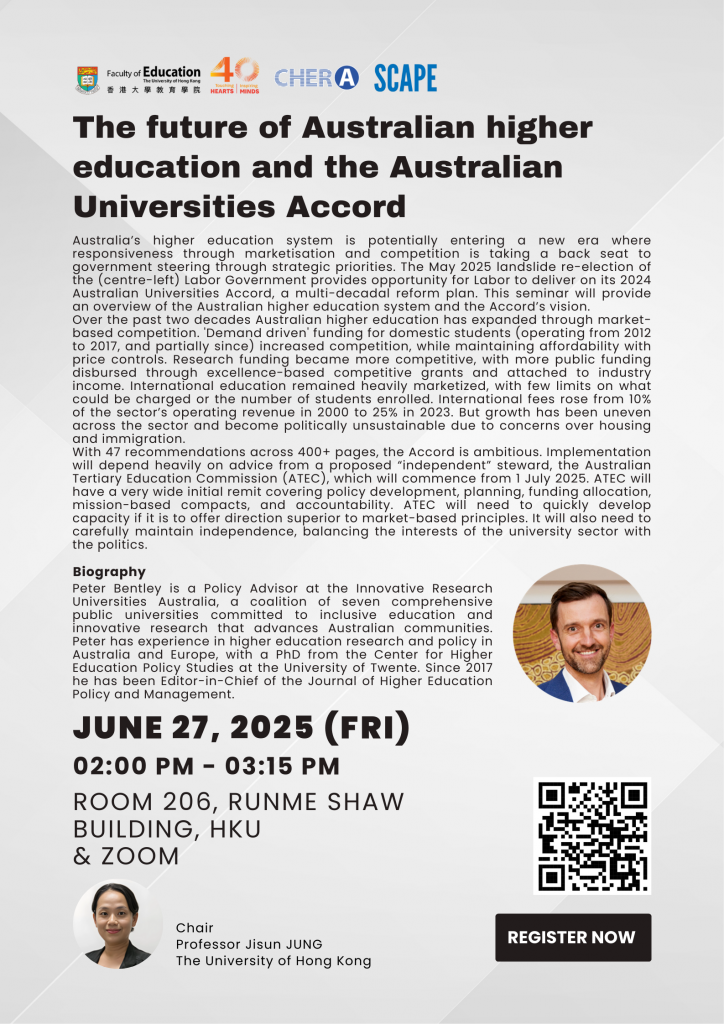
The future of Australian higher education and the Australian Universities Accord
Time: 2:00 to 3:15 pm, Friday, June 27
Format: Hybrid
Venue: RMS 206
Speaker: Dr. Peter Bentley (Innovative Research Universities Australia)
Chair: Prof. Jisun Jung (The University of Hong Kong)
Registration link: https://hku.au1.qualtrics.com/jfe/form/SV_eloVo7D7PP51CMC
Abstract:
Australia’s higher education system is potentially entering a new era where responsiveness through marketisation and competition is taking a back seat to government steering through strategic priorities. The May 2025 landslide re-election of the (centre-left) Labor Government provides opportunity for Labor to deliver on its 2024 Australian Universities Accord, a multi-decadal reform plan for tertiary education. This seminar will provide an overview of the Australian higher education system and the Accord’s vision, including the shift away from market-based principles.
Over the past two decades Australian higher education has expanded dramatically through market-based competition. ‘Demand driven’ funding for domestic students (operating from 2012 to 2017, and partially since) increased competition for domestic students, while maintaining affordability with price controls and accountability through a national regulator (TEQSA) and metrics-based reporting. Research funding also became more competitive, with more public funding disbursed through excellence-based competitive grants and formulaic funding attached to industry income. International education remained heavily marketized, with few limits on what could be charged or the number enrolled. International student fees rose from 10% of the sector’s operating revenue in 2000 to around 25% in 2023. But its growth has been uneven across the sector and proven unstable for universities and their staff. It has also become politically unsustainable due to concerns over housing and immigration.
With 47 recommendations across 400+ pages, the Accord is ambitious. But so far, its recommendations have been mostly unfunded or ignored by the Australian Government. Implementation will depend heavily on advice from a proposed “independent” steward, the Australian Tertiary Education Commission (ATEC). ATEC will commence from 1 July 2025 and have a very wide initial remit covering “policy development for higher education and research, future planning, making mission-based compacts, pricing, funding allocation, accountability, data collection and transparency, quality and performance.” ATEC will need to quickly develop capacity to offer advice and direction superior to market-based principles. It will also need to carefully maintain its independence, balancing the interests of the university sector with the politics.
About the speaker:
Peter Bentley is a Policy Advisor at the Innovative Research Universities Australia, a coalition of seven comprehensive public universities committed to inclusive education and innovative research that advances Australian communities. Peter has experience in higher education research and policy in Australia and Europe, with a PhD from the Center for Higher Education Policy Studies at the University of Twente. Since 2017 he has been Editor-in-Chief of the Journal of Higher Education Policy and Management.
Asia Holds Most of Global Private Higher Education Enrolment: How Is Asia Typical and Atypical Globally?
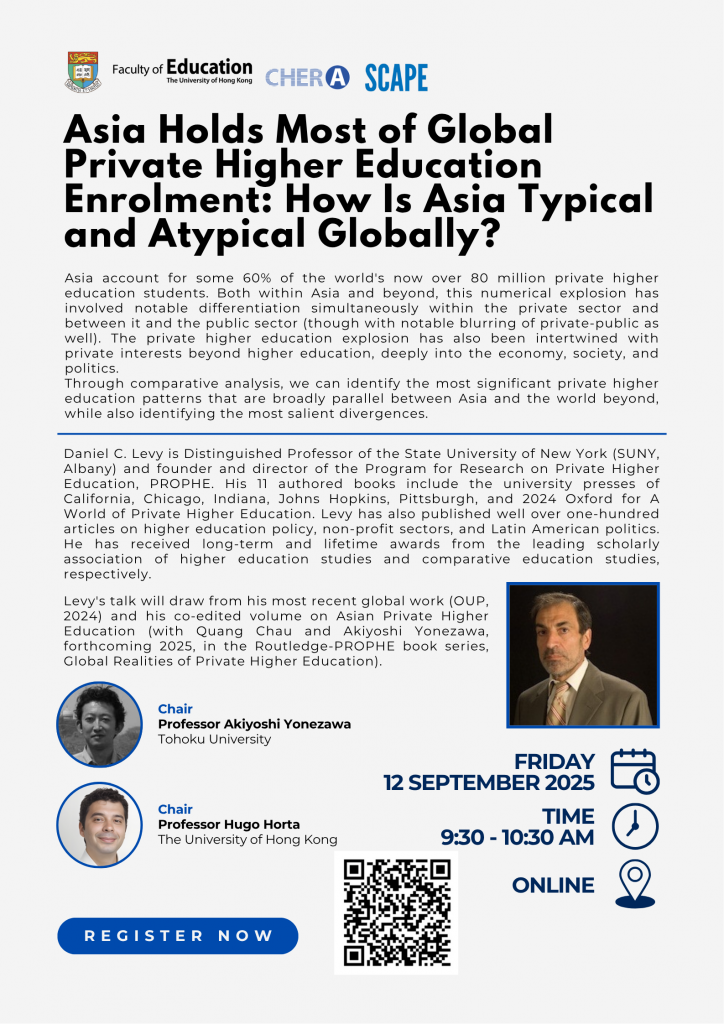
Time: 9:30am (HKT)
Date: Sep 12, 2025
Mode: by ZOOM
Speaker: Professor Daniel C. Levy (State University of New York)
Chair: Professor HORTA, Hugo (The University of Hong Kong); Professor Yonezawa (Tohoku University)
Registration link: https://hku.zoom.us/meeting/register/fUrqdy8YSB6YPvLGPfqlFg
ABSTRACT: Asia account for some 60% of the world’s now over 80 million private higher education students. Both within Asia and beyond, this numerical explosion has involved notable differentiation simultaneously within the private sector and between it and the public sector (though with notable blurring of private-public as well). The private higher education explosion has also been intertwined with private interests beyond higher education, deeply into the economy, society, and politics.
Through comparative analysis, we can identify the most significant private higher education patterns that are broadly parallel between Asia and the world beyond, while also identifying the most salient divergences.
BIO: Daniel C. Levy is Distinguished Professor of the State University of New York (SUNY, Albany) and founder and director of the Program for Research on Private Higher Education, PROPHE. His 11 authored books include the university presses of California, Chicago, Indiana, Johns Hopkins, Pittsburgh, and 2024 Oxford for A World of Private Higher Education. Levy has also published well over one-hundred articles on higher education policy, non-profit sectors, and Latin American politics. He has received long-term and lifetime awards from the leading scholarly association of higher education studies and comparative education studies, respectively.
Levy’s talk will draw from his most recent global work (OUP, 2024) and his co-edited volume on Asian Private Higher Education (with Quang Chau and Akiyoshi Yonezawa, forthcoming 2025, in the Routledge-PROPHE book series, Global Realities of Private Higher Education).
香港大學世紀之問 —— 改革開放初期與內地交流的人和事
HKU in the Early Days of Reform and Opening-up

| 《香港大學世紀之問 —— 改革開放初期與內地交流的人和事》 HKU in the Early Days of Reform and Opening-up |
| 主編:陳婉瑩 Editor-in-chief: Ying Chan 出版:三聯書店(香港)有限公司 Publisher: Joint Publishing (H.K.) Co., Ltd. |
| This book tells the story of 18 individuals who pioneered academic and professional exchanges between HKU and mainland China in the 1980’s. These men and women blazed the trail in eight sectors, medicine, engineering, literature and history, education, architecture, social work, law, and city planning, with expertise and dedication. Our CHERA members, Professors Gerard A. Postiglione and Cheng Kai Ming, actively engaged in exchange and communication with the mainland during the Reform and Opening-up period. They are prominently featured in the book with documents, stories, analysis, and photos. |
Jamil Salmi (ed.) (2023). Transforming Lives at the Institutional Level: Equity Promotion Initiatives Across the World
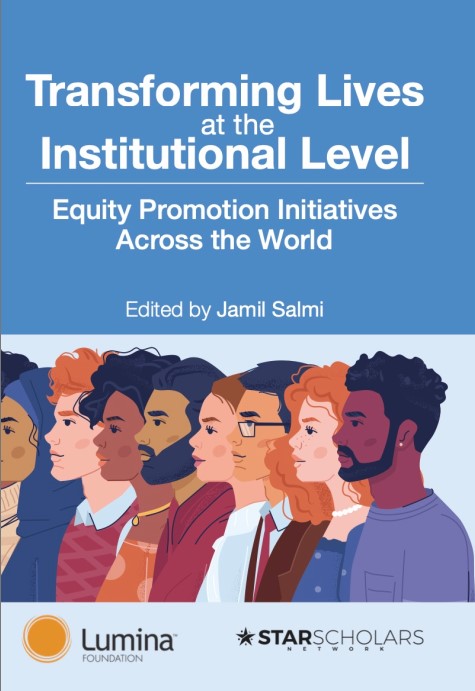
In the ever-evolving landscape of global education, the quest for equitable access to quality higher education remains a pressing challenge. Across the world, countless children and young individuals confront daunting circumstances that impede their educational opportunities due to factors such as race, gender, socioeconomic background, and geographical origin. This particularly affects those in developing countries and marginalized groups globally. To address this issue, promoting inclusivity and pluralism within higher education institutions has become an imperative driven by the principles of social justice and the United Nations’ Sustainable Development Goals.
Throughout Transforming Lives at the Institutional Level: Equity Promotion Initiatives Across the World, readers will gain profound insights into various equity-focused initiatives. From integrating low-income students into university cultures and implementing student aid programs to promoting balanced regional selection and supporting students with disabilities, the case studies offer a wealth of knowledge and good practices. They delve into affirmative action, indigenous inclusion, coaching programs, and many more initiatives aimed at improving access for underrepresented groups. This volume underscores the importance of comprehensive equity promotion policies that encompass financial and nonmonetary aspects. It emphasizes the need for coordination between national and institutional actions, with an equal focus on both access and completion. Long-term perspectives and well-established information systems are essential in effectively addressing equity gaps and measuring progress.
Editor
Jamil Salmi, Global Tertiary Education Expert, Emeritus Professor of Higher Education Policy at Diego Portales University, Chile
Gerard A. Postiglione, Christopher J. Johnstone, & Wesley R. Teter (eds.) (2023). HANDBOOK OF EDUCATION POLICY A New Direction for EU Foreign Policy?
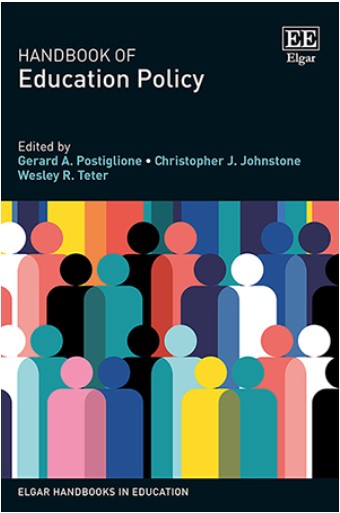
Edited by Gerard A. Postiglione (Professor Emeritus, Honorary Professor, The University of Hong Kong), Christopher J. Johnstone (Associate Professor, University of Minnesota, US) and Wesley R. Teter (Research Fellow, Center for Advanced School Education and Evidence Based Research, University of Tokyo, Japan)
Publisher: Edward Elgar Publishing
‘The new Handbook of Education Policy edited by Postiglione, Johnstone and Teter is a welcome addition to the academic literature on the transformation of education policy in the aftermath of the COVID-19 pandemic. The 22 chapters of this well-researched book give a comprehensive analysis of how education policy must adapt to a radically changed world. Through a skilful combination of thematic pieces and case studies from a large range of countries, the chapter authors challenge us to embrace new education policy concepts, such as public value governance and knowledge democratization, that can foster innovation and accountability in times of uncertainty. Gerard Postiglione, Christopher Johnstone, and Wesley Teter should be congratulated for this excellent scholarly contribution that has the potential of influencing policy makers all over the world to design and implement more sustainable and innovative education policies.’
– Jamil Salmi, Diego Portales University, Chile
‘This Handbook combines an up-to-date overview with theoretically-informed analysis of global education policies. It is erudite, insightful and original. It will be a vital resource for education policy researchers and an excellent starting point for students, in any location.’
– Stephen Ball, University College London, UK
This insightful Handbook is an essential guide to educational policy around the world. As shifting geopolitics, intensified climate change, and widening economic inequalities persist, the need for informed educational policy is critical.
Bringing together a unique collection of international case studies by scholars and practitioners from over twenty countries, the Handbook highlights how the contextual nature of educational policy and its implementation acknowledges both global trends and local nuance. Chapters explore key contemporary topics including the effects of the COVID-19 pandemic on international educational policy; opportunities for academic modernization in Ukrainian society; gender equality in Korean and Japanese universities; and inclusive education policies throughout the developing world, including India, South Africa, and Uruguay. It further discusses the ways in which governmental, non-governmental, and global education specialists are shaping new agendas focused on equity and responding to global crises.
Offering new perspectives on educational policy in a post-pandemic world, this comprehensive Handbook will be crucial reading for students and scholars of education policy, politics and public policy, sociology, and university management. It will also be beneficial for educational research associations and international development agencies, including UNESCO, the Asian Development Bank, and the World Bank.
Click here to access further details about the book.
Book review: Below is the book review for the “Handbook of Education Policy.” You can click on the image to view the full book review or simply click here to explore the book review in more detail.
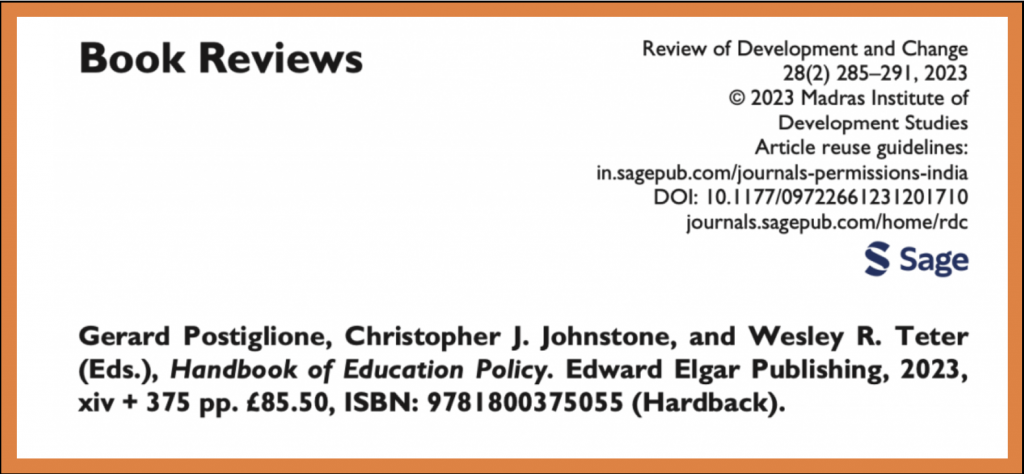
Tilak, J. B. (2023). Book review: Gerard Postiglione, Christopher J. Johnstone, and Wesley R. Teter (Eds.), Handbook of Education Policy
People
Advisors
Professor Akira Arimoto, Hyogo University
Professor Anthony Welch, Sydney University
Professor Huang Futao, Hiroshima University
Professor Jamil Salmi, Tertiary Education Coordinator
Professor Jandhyala B. G. Tilak, Council for Social Development, India
Professor Jung Choel Shin, Seoul National University
Professor Liu Niancai, Shanghai Jiaotong University
Professor Marijk Van der Wende, Utrecht University
Professor Min Weifang, Beijing University
Professor Philip Altbach, Boston College
Professor Ruth Hayhoe, University of Toronto
Professor Shi Jinghuan, Tsinghua University
Professor Simon Marginson, Oxford University
(in alphabetical order)
Faculty
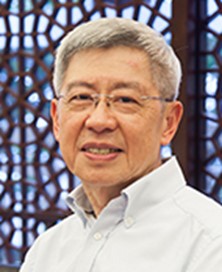 |
 |
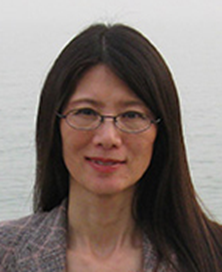 |
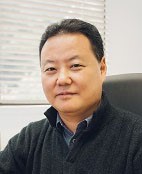 |
|
 |
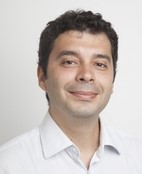 |
 |
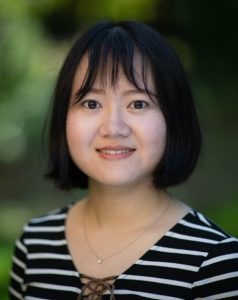 |
Articles
South China Morning Post – Opinion
Published: 3:30am, 28 Jul, 2023
No place for ethnic profiling of academics, whether in Hong Kong or US universities
Gerard A. Postiglion
- Talk of a ‘mainlandisation’ of academics in Hong Kong is baseless and only hurts the intellectual vitality and dedication of the research enterprise
- Recent developments in the US should serve as a warning: government overreach can damage academic careers and the functioning of universities
Lectures and Seminars
- MEd Capstone Projects 2024-2025: Higher Education Specialism
- Asia Holds Most of Global Private Higher Education Enrolment: How Is Asia Typical and Atypical Globally?
- The future of Australian higher education and the Australian Universities Accord
- Hidden Synergy: Hong Kong’s Role in the Development of Science and Technology in Chinese Higher Education
- Studytalk and student influencers: The role of social media in student support
- Asia Holds Most of Global Private Higher Education Enrolment: How Is Asia Typical and Atypical Globally?
- Beyond Borders: How International Student Mobility Drives Poverty Reduction
- International collaboration of Ukrainian scholars: effects of the Russian full-scale invasion of Ukraine
- Reconceptualising Learner Agency in Feedback: A Situational, Deliberative, and Entangled Perspective
- Book Talk_Gender and Education in Central Asia
- Nurturing Successful Intellectual Styles for Creativity
- The shadows of internationalisation: a new conceptual lens for the effects of internationalisation policy
- International Higher Education Partnerships in East and Southeast Asia: Strategic and Ethical Issues
- Reimagining PhD Education: Navigating Global Shifts and Expanding Career Horizon
- Seminar series: “Use of Organisational Theories in Higher Education Research” by Dr Yuzhuo Cai
- ASSESSING THE ACADEMIC PERFORMANCE AND SCHOLARLY INFLUENCE OF RECTORS AT INDONESIA’S PUBLIC UNIVERSITIES: A COMBINED BIBLIOMETRIC AND SCHOLASTIC EVALUATION.*
- Pursuing doctoral education in China: An exploration of international students’ learning journeys
- How to integrate design-thinking, experiential learning and social impact in curriculum innovation: the case of “Edu-preneurial Leadership” course?
- Developing learners’ workplace feedback literacy
- Educational EXPO & Book Launch
- Academic Exchanges and Sino-American Relations: Canary in Coal Mine, Bellwether of Change, or Bridge over Troubled Waters?
- Revival of “internationalization” in mainland Chinese universities with Christian roots? Historical and empirical inquiries in overseas experienced talent recruitment
- Book Launch: Building a Better Normal: Visions of Schools of Education in a Post-Pandemic World (Emerald Publishing)
- Relational pedagogies in higher education
- Student self-formation through engagement with knowledge in different academic cultures: a multi-cited ethnography
- Book Talk: Student Engagement across Pacific Asia: Steps toward a shared framework
- Book talk: ‘Student Agency and Self-Formation in Higher Education’
- Knowledge – The Most Important and Least Considered Object of Teaching and Learning in Higher Education
- Students’ Motivation and Learning Experience in Higher Education
- Multiple Pathways to Triple Helix Model: What Can We Learn from China
- Higher Education in a Time of Artificial Intelligence
- Internationalisation in Higher Education
- Culturally engaging students as partners in Asia: Following or translating?
- Curriculum and Assessment in Higher Education
- New Frontier of Academic Excellence Initiatives in Japan
- Evolution of the Weidman Models of Student Socialization in Higher Education
- How Chinese Universities innovate education for the future society
- Using Sociological Frameworks for Understanding Educational Change and Development in Global Context
- Experiences of the PhD in Japan: Domestic and International Student Perspectives
- Revisiting quality assurance and delivery modes of cross-border higher education during the pandemic- Does physical mobility matter in qualification recognition of joint / dual degree programmes from an Asian perspective?
- Democratizing International Student Mobility: Challenges and Opportunities
- Academic Star Wars: Excellence Initiatives in Global Perspective
- The Development and Governance of Private Universities in China
- Leaving Academic Science: A Longitudinal Study of Scientists in 38 OECD Countries
- Gender equality plans: how (much) do they work? Challenges and experiences from Europe
- British universities issuing voluntary redundancies: manifest and latent functions
- Brexit: brain drain of Europeans and brain grains of Asians
- Navigating Your International Doctoral Experience (and Beyond)
- Reporting from an ongoing project about sociology PhD students publishing during enrolment in Australia and New Zealand
- The Annus Horibilis: A Multilevel Study of Null Scientific Productivity
- Towards a Framework for (Re)Thinking the Ethics and Politics of International Student Mobility
- “The Golden Guests”? International Academics in Mainland Chinese Universities
- Making Sense of Academic Conferences: Presenting, Participating and Organising
- Constructing Student Mobility: How Universities Recruit Students and Shape Pathways between Berkeley and Seoul
- The Evolving Trajectory of Joint Venture Universities in China: The Case of Duke Kunshan University
- Higher Education, State and Society: Comparing the Chinese and Anglo-American Approaches (by Lili Yang, Bloomsbury, 2022)
- Exploring the development of higher education research topics in the last two decades: Seven patterns
- Interpreting Teaching and Research Nexus from the Perspective of the Emerging Teaching Track
- Exploring the Evolving Academic Profession: New Challenges and Methodological Dilemmas as We Study Ourselves
- “Relative Autonomy” and the Governance of Public Universities: A Canadian Perspective
- Assessment and feedback redesign in ChatGPT times
- Empires of Ideas: Will China Overtake America in Higher Education? What may this mean for Hong Kong and HKU?
- Success Factors of International Branch Campus Operation: Comparative Analysis Between Korea and Japan
- Rethinking University-society Relations – Comparing Western and Non-Western Experience
- Symposium on the Renovating and Possibilities of Higher Education in the GBA
- Educating Postgraduates on Educational Management and Administration in the New Times
- Symposium on employment trajectories of PhD graduates in East Asia
- Earlier seminars
Workshops and Conferences
Higher Education Research Association (HERA) 2022 Conference
Mass Higher Education After Pandemic in East Asia:
Policy, Diversity, and Social & Human Contribution
Date: 27-29 April 2022
Venue: Online Conference (Zoom)
Keynote speakers:
Professor Gerard A. Postiglione (University of Hong Kong)
Professor Futao Huang (Hiroshima University)
Professor Anthony Welch (University of Sydney)
The upcoming 8th HERA conference aims to focus on discussing how the changes in the current global political economy, especially under the ongoing pandemic crisis have impacted higher education in East Asia. The higher education sector has expanded rapidly in many countries in the recent three decades. The rapid growth was strongly supported through policy initiatives as well as market demands in the knowledge society. Although higher education receives political support with these policy initiatives, we also witness how national and international politics are deeply involved in higher education institutions. In this regard, higher education institutions as social institutions are suffering from an “identity crisis” with the growing political involvement. The political regime prefers to reduce public funding to higher education and increase the share of competitive funding in most countries. These changes have accelerated with neoliberalism and globalization since the 1990s. However, policy mechanisms often become altered along with the change in political regime and socio-environmental factors because national politics are increasingly becoming populism and strategic. These socio-political and economic changes accompany various issues and challenges. In addition, the Pandemic caused by the COVID-19 has enormous impacts on higher education including massive use of online education, and the internationalization of higher education is experiencing transformative changes. These socio-political and economic changes accompany various issues and challenges.
Based on this theme, the HERA2022 conference covers various topics related to theory, policy, and practices in the fields of higher education. These issues are:
- Policy and politics
- Funding and finance
- Governance, organization, and reforms
- Research and development
- Institutional management and research (IR)
- Academic profession, students
- Curriculum and instruction
- Graduate education
- Internationalization
- Global rankings
- Other topics related to higher education
We welcome all scholars, researchers, and practitioners from around the world to share their expertise and knowledge in the topic of higher education at the HERA2022 conference. The organizing committee highly encourages and welcomes scholars to organize various panel sessions for a more in-depth discussion on their research topics.
Timeline:
Call for papers: Dec 20, 2021 – Jan. 31, 2022
Decision letter: Feb 14, 2022
Early registration: Feb 14, 2022 – Mar 14, 2022
Regular registration: Mar 15, 2022 – April 20, 2022
|
Session type |
Session management |
| 1. Individual research session
(For published papers or paper in progress) |
|
| 2. Panel session
(Organized by a group of researchers) |
|
| 3. Book workshop session
(For published book or Book design working group) |
For more information about HERA2022, please visit http://www.hera-research.org
Please submit the proposal form to hera.research@gmail.com by Jan 31, 2022.
Thank you very much!
Best regards,
HERA2022 Organizing Committee
– Web: http://hera-research.org/hera-2022-conference/
– E-mail: hera.research@gmail.com
Books
- 陳婉瑩(2023). 香港大學世紀之問 —— 改革開放初期與內地交流的人和事 HKU in the Early Days of Reform and Opening-up
- Jamil Salmi (ed.) (2023). Transforming Lives at the Institutional Level: Equity Promotion Initiatives Across the World
- Gerard A. Postiglione, Christopher J. Johnstone, & Wesley R. Teter (eds.) (2023). HANDBOOK OF EDUCATION POLICY A New Direction for EU Foreign Policy?
- Lili Yang (2022) Higher Education, State and Society: Comparing the Chinese and Anglo-American Approaches
- Li-fang Zhang (ed.) (2021). The Oxford Encyclopedia of Educational Psychology
- Alice Y.C. Te (2022) Choosing Chinese Universities – A Negotiated Choice for Hong Kong Students, Routledge, US and UK
- Rui Yang (2022) The Chinese Idea of a University: Phoenix Reborn
- Wing-Wah Law (2019). Politics, Managerialism, and University Governance, Singapore: Springer
- Naomi Winstone and David Carless (2019). Designing Effective Feedback Processes in Higher Education: A Learning-Focused Approach
- Oleksiyenko, A., Zha, Q., Chirikov, I., and Li, J. (eds.)(2018). International status anxiety and higher education: The Soviet legacy in China and Russia
- Anatoly V. Oleksiyenko (2018). Global Mobility and Higher Learning
- Jung, J., Horta, H., Yonezawa, A. (eds.)(2018). Researching higher education in Asia: History, development, and future
- Postiglione, G. A. (2017). Society, Culture, Education and Globalization in Asia: The Selected Works of Gerard A. Postiglione
- Postiglione, G. A. & Jung, J. (eds.) (2017). The Changing Academic Profession in Hong Kong: Governance, Productivity, and Global Integration
- J.C. Shin, Gerard A. Postiglione, and Futao Huang (2015). Mass Higher Education Development in East Asia: Strategy, Quality, and Challenges
- Xie, A. (2016). Guanxi and School Success in Rural China
- Li, J. (2016). Quest for world-class teacher education? A multiperspectival study on the Chinese model of policy implementation
- William C. Kirby and Marijk van der Wende (2016). Experiences in Liberal Arts and Science Education from America, Europe, and Asia: A Dialogue across Continents
